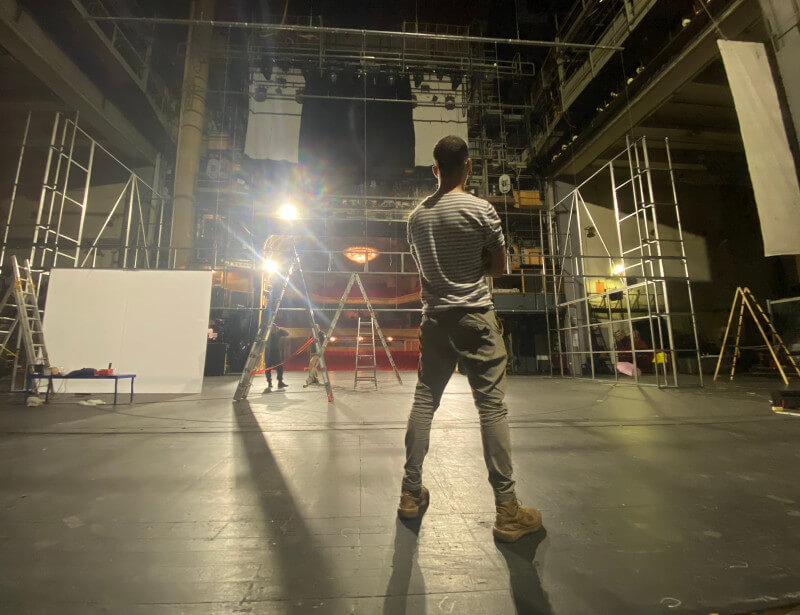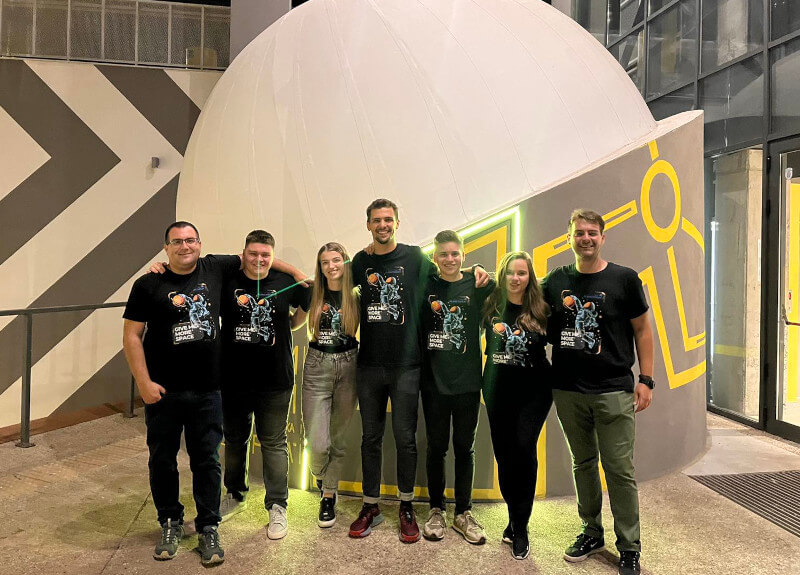
Nedislav Veselinov is used to hearing “This is impossible.” He likes nothing better than to prove otherwise.
As an astrophysicist, Nedislav works in the realm of potential. An entrepreneurial engineer, he is interested in what is yet to be invented. He and several other young scientists launched Photonics, a Sofia-based engineering startup, because they like challenges that advance Bulgaria’s potential to produce state-of-the-art science.
When Nedislav and an engineer friend, Yavor Grigorov, first started working on a flight simulator back in 2018, everyone dismissed the endeavor as doomed to fail. It would be too expensive, and the know-how to do it would be difficult to acquire. Their landlady in Sofia’s Knyazhevo neighborhood must have considered their chances of success so slim that she took pity on them and rented them garage space at a fraction of the going rate. They invested most of what they earned in their daytime jobs into the project.
“We worked so we could work,” Nedislav remembers, laughing.
Several months, a lot of trial and error, and 20,000 levs later, the first Bulgaria-made flight simulator opened its doors to the public. Today, the MAS G1 Photonics Flight Simulator attracts more than 5,000 visitors a year and is used for training both beginner and advanced pilots.
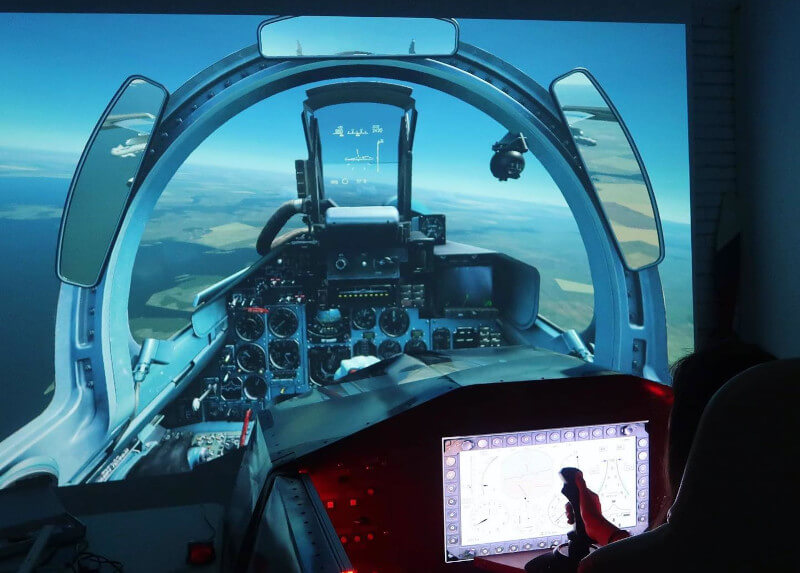
“I want to prove that we can do things in Bulgaria. We just need people with verve, people who want to create something new,” Nedislav says.
The next new thing he trained his sights on combined his interests in both physics and outer space—a planetarium. Until last year, Sofia was the only European capital without a “cosmic theater.” The absence deprived the capital’s residents and guests of a compelling way to advance their STEM learning but also created an opportunity for entrepreneurial individuals like Nedislav.
Early plans for Andromeda Planetarium were met with the usual skepticism. Building a planetarium would be costlier (Nedislav’s initial estimate was 40,000–50,000 levs) and more technically complicated than designing a flight simulator, but Nedislav and his partners were undeterred.
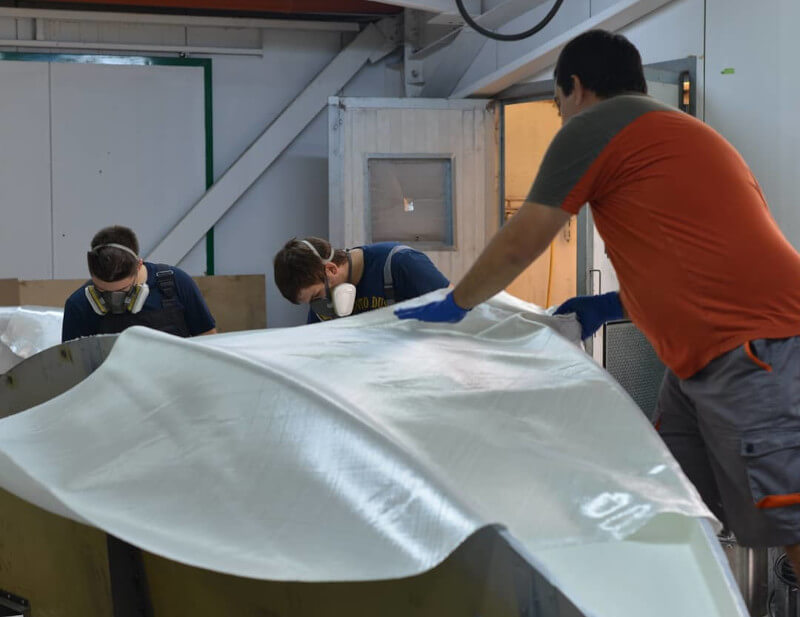
Crucially, the team was maturing; it was no longer two friends working out of a garage in Knyazhevo. By the end of 2018, the group around Nedislav had grown to include Apostol Spasov, a precocious then-16-year-old with a knack for money and people management, and Krum Kaishev, an experienced technologist who is also in charge of Photonics’ international partnerships. Aviation engineer Yanislav Mirkov, who joined Photonics in 2020, the year of the startup’s official launch, was another key addition to the team.
Photonics currently employs nine people, including a digital marketing coordinator through the America for Bulgaria Foundation’s Digital Marketing for Worthy Causes fellowship program.
The team’s qualities and determination notwithstanding, the planetarium endeavor required some complicated engineering, and money turned out to be a far greater hurdle than they had anticipated. An important early break came with the Foundation’s Science with a Future request for proposals in 2020. The team had just spent the last of the first external funding they received, a grant from the Karoll Knowledge Foundation’s science entrepreneurship program; the project had barely gotten off the ground; and the team had no idea how they would continue their work without additional support.
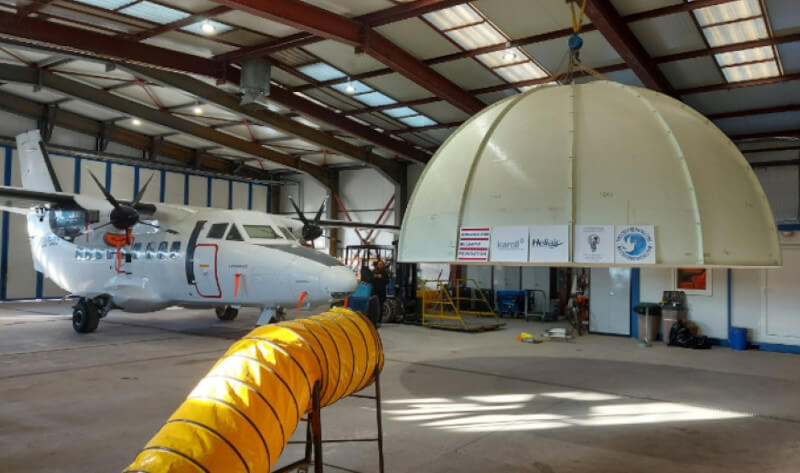
Getting word that they were among the 17 approved projects in ABF’s science RFP was an important morale booster, Nedislav says. “Without ABF’s help, we would have lost hope. The support was very important because we were just starting out,” he adds. The RFP award helped them complete the planetarium’s dome and start on the seating platform.
The Photonics team stared bankruptcy in the face three times, but in the eleventh hour a lucky development or a generous supporter always allowed them to continue their work. Their first home away from the Knyazhevo garage was provided by Bulgarian aircraft manufacturer Niki Rotor Aviation. State funding allowed them to conduct important dome endurance tests, while charter airline Heli Air supplied both additional capital and a new workshop space. Additional support came from data and analytics solutions provider Burgiss and Postbank’s Universe of Opportunities Fund. Sofia Municipality provided the planetarium with a permanent home, while 75 individuals helped pay for the planetarium’s projector system through a crowdfunding campaign on Platformata.bg.
“It’s amazing to see your dream come true,” Nedislav says. “We thank every single company, private investor, and donor who trusted us and recognized our project as socially significant!”
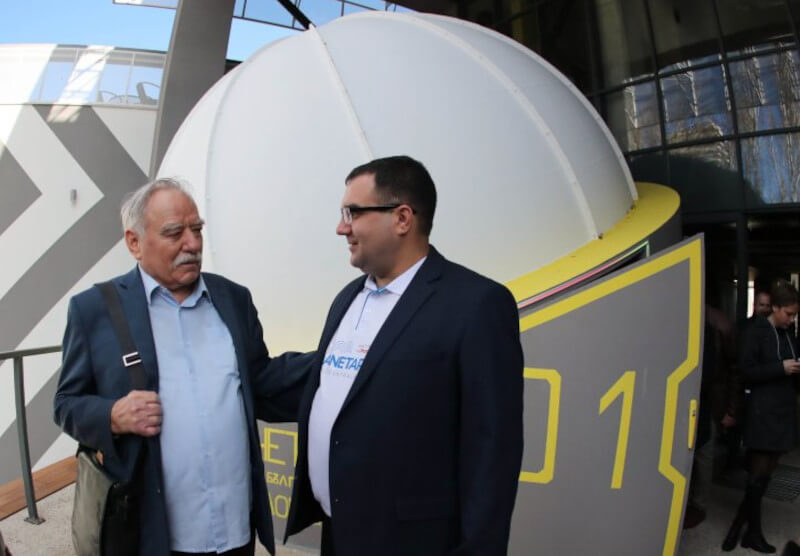
Andromeda Planetarium’s official launch in November 2022 made national news, drawing dozens of reporters and guests. None other than Georgi Ivanov, Bulgaria’s first astronaut, attended the opening ceremony. In the year since the planetarium’s inauguration, thousands of Sofia residents and visitors have experienced its immersive 3D shows and educational programs depicting the development of the Cosmos and our own planet.
In the meantime, Photonics completed a second flight simulator, for the Vocational High School of Mechatronics and Electronics in Burgas, while their quality work and use of composite materials such as carbon and Kevlar attracted customers in the security sector, who traditionally purchase their parts from established suppliers in the EU. As a result, security drones using Photonics-made parts now patrol Bulgaria’s southern border. Last but not least, Photonics’ solutions are increasingly preferred by Bulgarian companies interested in innovative machine design.
In early 2022, the Photonics team was beginning to acquire a reputation for succeeding where others wouldn’t even attempt to go, so they were approached for the construction of a theater set for the play Nora. While everyone else had turned the client down on account of the job’s complexity and tight deadline, Nedislav and the team embraced the challenge. They completed the set in a record five days!
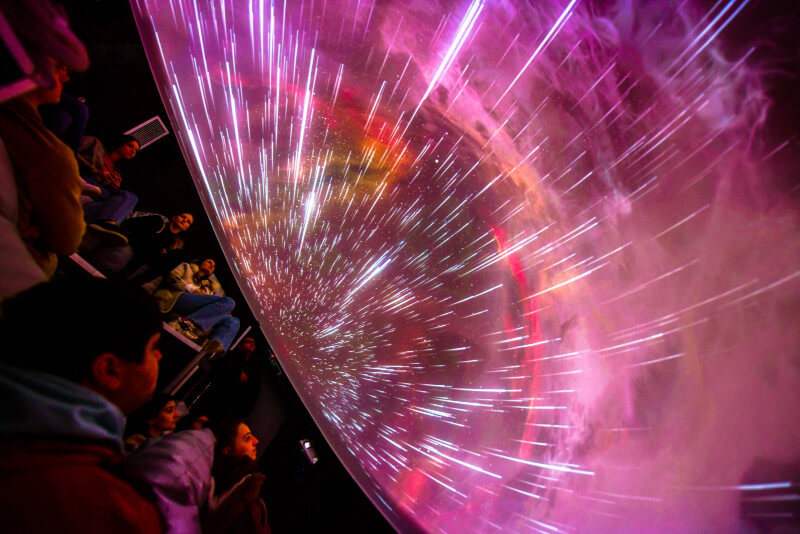
And this isn’t the only record they have set. Through strong ticket sales in the planetarium’s first year, Photonics has recovered more than half of the 320,000 levs it cost to build the installation. What is more, commercial success has allowed the team to dream big and consider bringing small commercially viable planetariums to other European cities as well. It has also freed up capital for long-term investments and partnerships with educational institutions. In cooperation with Niki Rotor Aviation, Photonics renovated and equipped an engineering makerspace at Sofia’s Technical University. Their investment and ongoing mentorship by the Photonics team will enable students in engineering majors to work on their own “impossible” ideas.
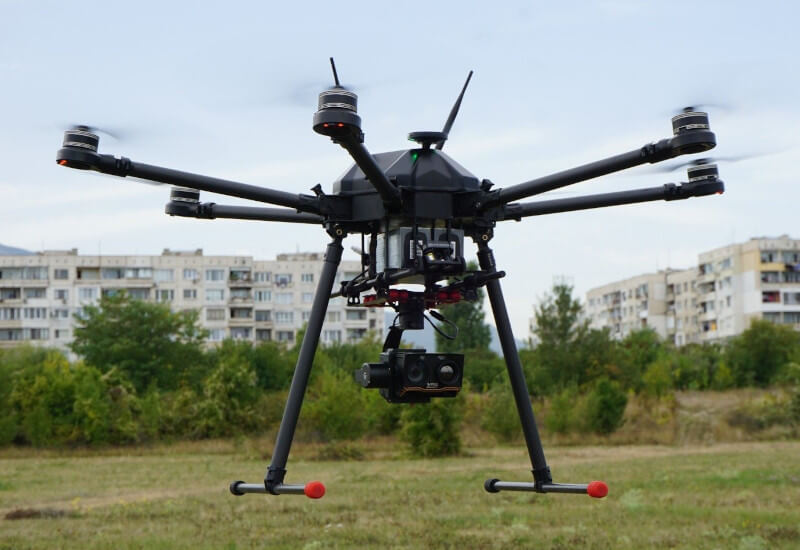
“We are creators; we determine our own destiny. This is what we hope to convince young people of. It is up to them to create, to develop their country. We are trying to be the starter that spurs them to become creators,” Nedislav says.
In addition to his many creative pursuits, Nedislav completed a doctorate in astronautical engineering at Sofia University in 2022. His doctoral thesis envisions a plane that can travel in Jupiter’s atmosphere. Despite Jupiter’s potential for supplying unlimited amounts of clean fuel, scientists still consider human colonization of the gaseous planet and meaningful exploitation of its resources impossible.
However, if history and entrepreneurial scientists like Nedislav and his team have anything to teach us, it is to use words like impossible a little more carefully.
